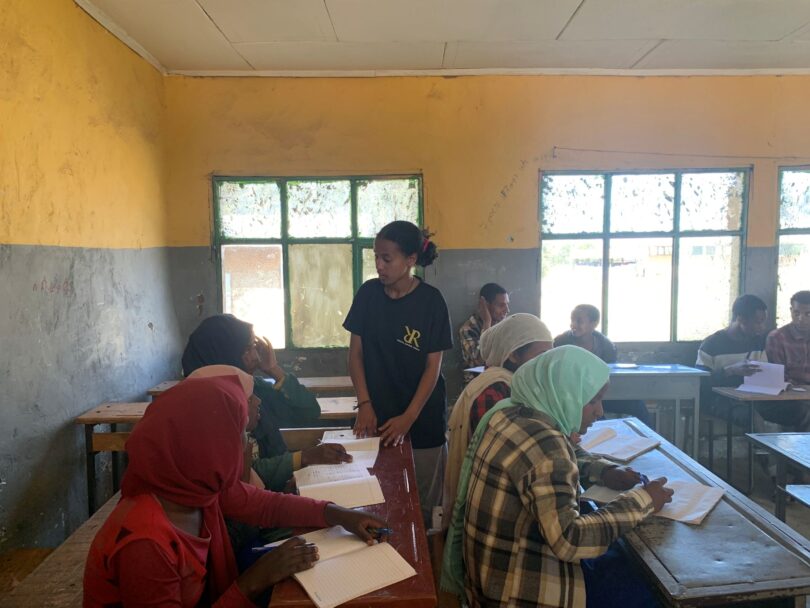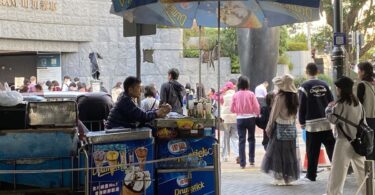Debre Birhan, ETHIOPIA – Displaced children living here in a packed refugee camp – escaping from dangerous conflict areas with their families – get little food and even less education.
Listen to the author read this article:
The camp is crowded with people, mostly women and children. Sanitation is poor and it is difficult for adults to find work.
I’ve visited the camp twice this year to distribute bread and am a weekly volunteer English teacher in a program started by a recent graduate at my school.
In 2023, Bililign Eshetu started this initiative to help these children get the education they deserve when he was in 11th grade. The program is called Rise for the Refugees, and its motto is, “Educate. Empower. Elevate.”
In collaboration with a nearby local middle school, Eshetu and his team were able to use classrooms at the school for tutoring after school hours. Every week, up to 30 refugee children go there and learn basic subjects such as math, English and science, taught by students from our school.
Wanting to be a part of this cause, I became one of the volunteers as an English teacher about two years ago. That’s when I saw firsthand just how torn apart the children’s lives are.

The refugee families fled the ongoing ethnic conflict in Ethiopia’s Oromia region, about 500 km, or about 310 miles, from the camp. Thousands of people have been displaced because of the violence, and some of them are living in the camp here in Debre Birhan.
In my visits to the camp and my work with the children, I’ve seen how destructive this war has been.
The children we teach are far behind in their education compared to their peers in other parts of a country by a couple of years.
In addition to lagging in their studies, some of them also have to take on jobs to support their families. We do what we can to support them by donating workbooks, pencils, pens and sometimes even sanitary supplies. But the truth is, there is only so much we high school students can do to help.
One girl I teach will always remain in my memory. She showed an enormous amount of potential, and I could see her eyes light up with recognition when I asked a question. But she was too shy to raise her hand and answer.
I spoke with her during break time, and although she was hesitant to talk, I got to hear about her family and what she thinks of the classes we teach. Over time, I saw her become more comfortable in class and she started to build her confidence, little by little.
This little girl is a representation of how deep rooted the consequences of war are, especially on innocent civilians who don’t deserve to be the collateral damage of conflict between larger powers.
But not all of them are getting even the small amount of help that we are giving the kids at the Debre Birhan camp. Some of them have no support at all.
Lelna Mengesha is a Junior Reporter with Youth Journalism International.



